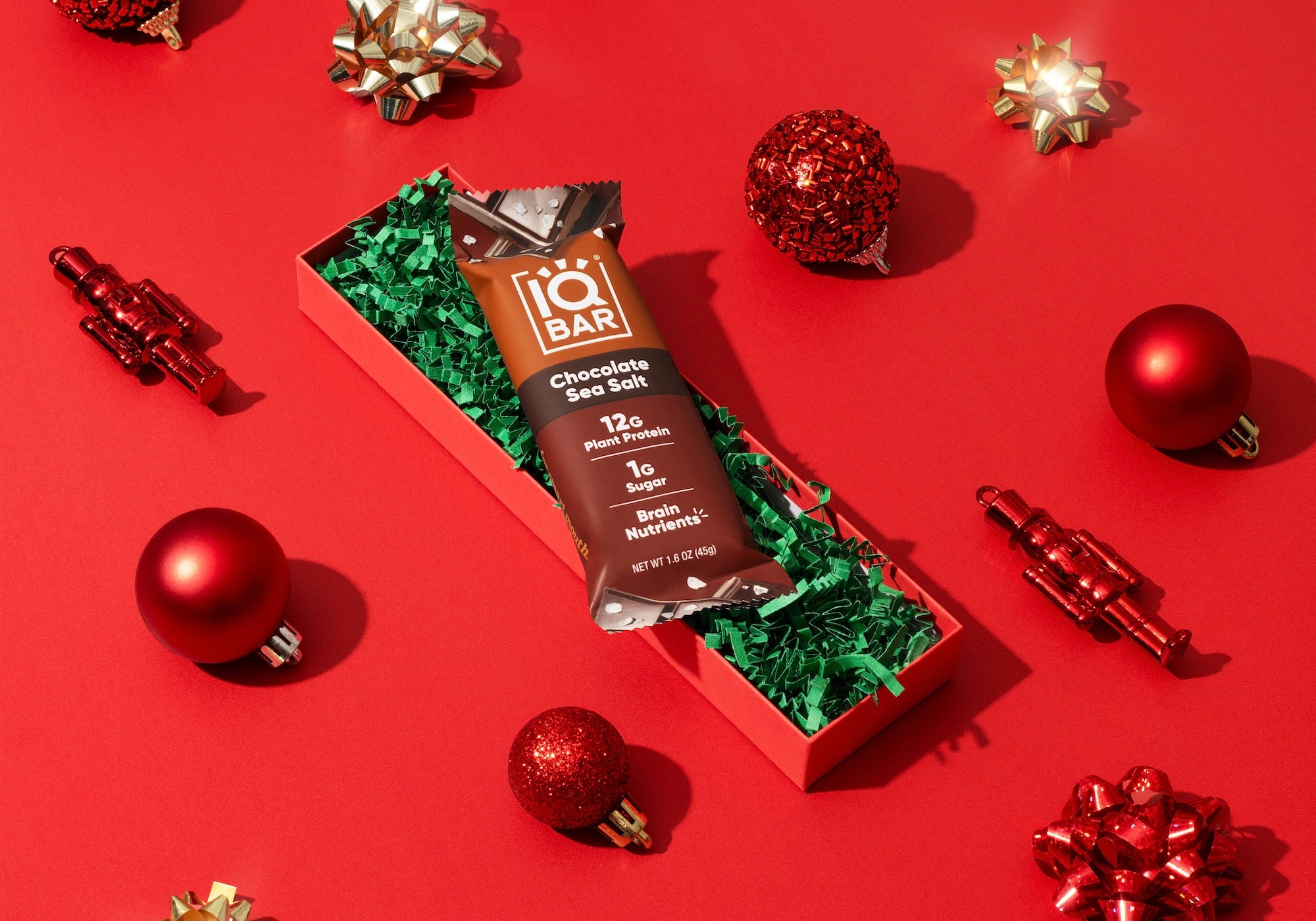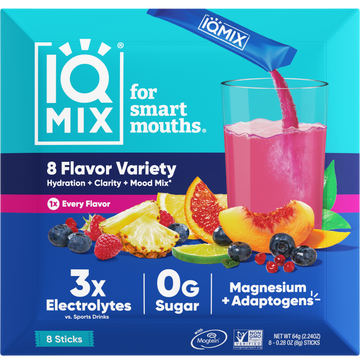In recent years, the shift towards plant-based eating has gained momentum, fueled by a growing awareness of its positive impact on personal health and the well-being of the planet.
Yet, the crux of a successful plant-based diet lies in its proper execution. Technically, one could be “plant-based” while centering their diet around Oreos and faux chicken tenders. However, this approach misses the health benefits and core essence of this way of eating.
So, what’s the right approach to a plant-based diet? Let’s delve into the essentials you should know.
What Is a Plant-Based Diet?
A plant-based diet is a way of eating that focuses on consuming foods primarily from plant sources. This diet emphasizes consuming fruits, vegetables, grains, nuts, seeds, and legumes while minimizing or completely avoiding animal-based foods like meat, dairy, and eggs.
While similar, a plant-based diet is distinct from a vegan diet, which strictly eliminates all animal foods, and a vegetarian diet, which freely includes dairy products and eggs.
For optimal results, a plant-based diet should focus on whole and minimally processed foods. Think whole grains over refined grains, fresh fruits instead of sugary fruit juices, and whole vegetables rather than pre-packaged veggie snacks.
What Are the Benefits of a Plant-Based Diet?
The plant-based diet offers many impactful health benefits, including a lower risk of obesity, heart disease, hypertension, type 2 diabetes, and certain types of cancer.[*][*][*][*][*] This is attributed to its high fiber content, rich array of vitamins and minerals, and low levels of saturated fats and cholesterol.
Additionally, a plant-based diet is often more environmentally sustainable than diets high in animal products, as it generally requires less water and land resources and produces fewer greenhouse gases.
For many, a plant-based diet also aligns with ethical beliefs regarding animal welfare and the reduction of animal exploitation in food production.
How to Do a Plant-Based Diet Right
Embarking on a plant-based diet can be a transformative and beneficial journey if done correctly. Here are some essential tips to maximizing the benefits of your plant-based diet:
#1: Focus on Whole Foods
A cornerstone of a healthy plant-based diet is reducing the intake of processed foods. Although items like vegan burgers, chips, and sugary cereals might be free of animal products, they’re often high in added sugars, unhealthy fats, and artificial additives while being low in essential nutrients.
Instead, focus on whole foods, including:
- Fresh or frozen fruits: berries, melons, citrus, pears, peaches, bananas, etc.
- Fresh or frozen veggies: leafy greens, broccoli, cauliflower, carrots, etc.
- Starchy veggies: white potatoes, sweet potatoes, squash, etc.
- Whole grains: brown rice, rolled oats, barley, faro, quinoa, etc.
- Healthy fats: olive oil, avocados, olives, unsweetened coconut, etc.
- Legumes: peas, lentils, hummus, pinto beans, black beans, etc.
- Nuts and seeds: almonds, cashews, pumpkin seeds, flaxseed, etc.
- Unsweetened plant milk: coconut milk, cashew milk, almond milk, etc.
- Spices and herbs: basil, cilantro, parsley, turmeric, black pepper, salt, etc.
- Plant-based protein: tofu, tempeh, and plant-based protein sources or powders with no sugar or artificial ingredients.
- Beverages: water, coffee, tea, sparkling water, etc.
Remember, the closer a food is to its natural state, the more health benefits it typically offers.
#2: Plan Your Meals
Effective meal planning is a cornerstone of a successful plant-based diet, ensuring that every meal is nutritionally complete and diverse. Here are some key strategies to help you balance and track your meals efficiently:
- Balance Your Meals: With each meal, include a protein source (like tofu or beans), a carbohydrate source (like whole grains or starchy vegetables), a fat source (like olive oil or avocado), and plenty of non-starchy vegetables (leafy greens, broccoli, etc.).
- Prepare in Advance: Meal prepping can help you maintain a balanced diet and avoid the temptation of convenient, less healthy options.
- Track Your Food: In the early stages of adopting a plant-based diet, consider tracking your meals using a food tracker app like Cronometer. This app will show you the exact nutrient breakdown of your daily food intake and can be invaluable in ensuring you're getting a balanced intake of proteins, fats, carbohydrates, vitamins, and minerals. Once you get a feel for the types of foods and portions needed to meet your nutritional requirements, you can stop tracking if desired.
#3: Ensure You’re Getting Enough Protein
Protein is a fundamental building block of life, playing a crucial role in the composition and function of every cell in your body. Proteins consist of smaller molecules called amino acids, which link together in long chains to form proteins. Your body produces some of these amino acids, but you must obtain others (known as essential amino acids) through your diet.
Ensuring adequate intake is vital when following a plant-based diet. To do this:
- Determine How Much Protein You Need: Current guidelines suggest adults 19 years of age and older consume 0.8 grams of protein per kilogram of body weight.[*] This translates to 54 g of protein for a 150-pound female, for example. It’s important to note that the amount of protein a person needs may differ depending on their activity level, weight, age, sex, and health status.
- Diversify Your Sources: Include a variety of plant-based protein sources such as lentils, chickpeas, tofu, tempeh, edamame, quinoa, clean protein powders (pea protein, brown rice protein, etc.), and healthy protein bars like IQBAR. Each of these foods offers a unique profile of amino acids, the building blocks of protein.
- Track Your Protein Intake: To ensure you meet your protein requirements, consider initially tracking your food intake using an app like Cronometer.
😉 Psst! Each IQBAR contains 12 grams of plant-based pea protein, plus five key brain nutrients shown to support sustained cognitive energy, performance, and health. Choose from delicious flavors like Toasted Coconut Chip, Lemon Blueberry, Banana Nut, Matcha Chai, and more!
#4: Ensure Adequate Micronutrient Intake
Micronutrients are essential vitamins and minerals that our bodies need in small amounts to function properly. Unlike macronutrients (carbohydrates, proteins, and fats), which are required in larger quantities for energy and structural functions, micronutrients are required in much smaller quantities, yet they are crucial for various biochemical processes and maintaining overall health.
Here’s how to make sure you’re getting enough:
- Eat a Rainbow of Fruits and Vegetables: Different colors represent different nutrients and antioxidants. Consuming a diverse range of fruits and vegetables helps to provide a broad spectrum of vitamins and minerals.
- Focus on Iron and Calcium: Plant-based diets can be lower in certain micronutrients like iron and calcium. Include iron-rich foods like spinach, lentils, and fortified whole grain cereals, and pair them with vitamin C-rich foods to enhance absorption.[*] For calcium, rely on fortified plant milks, tofu, and leafy greens like kale and broccoli.
- Don’t Forget Vitamin B12 and Omega-3 Fatty Acids: Vitamin B12 is primarily found in animal products, so consider including B12-fortified foods like nutritional yeast and certain cereals or a B12 supplement. For omega-3s, consume a daily serving of flaxseeds, chia seeds, hemp seeds, or walnuts.
#5: Listen to Your Body
Adapting to a plant-based diet requires attentiveness to your body’s signals and responses, ensuring your nutritional needs are being met. If you’re feeling tired or weak while eating a plant-based diet, you might need more calories, protein, or specific vitamins.
If you’re unsure what changes to make or have specific dietary needs, consulting with a nutritionist can provide personalized guidance.
Embracing the Plant-Based Journey
Adopting a plant-based diet is not just a dietary change but a step towards a healthier and more sustainable lifestyle. By focusing on a diverse range of plant-based foods, you can enjoy a multitude of health benefits and contribute positively to our planet. Win-win!
Written by Katie Koschalk, a health and wellness writer, certified holistic nutritionist, and certified personal trainer based in California.





